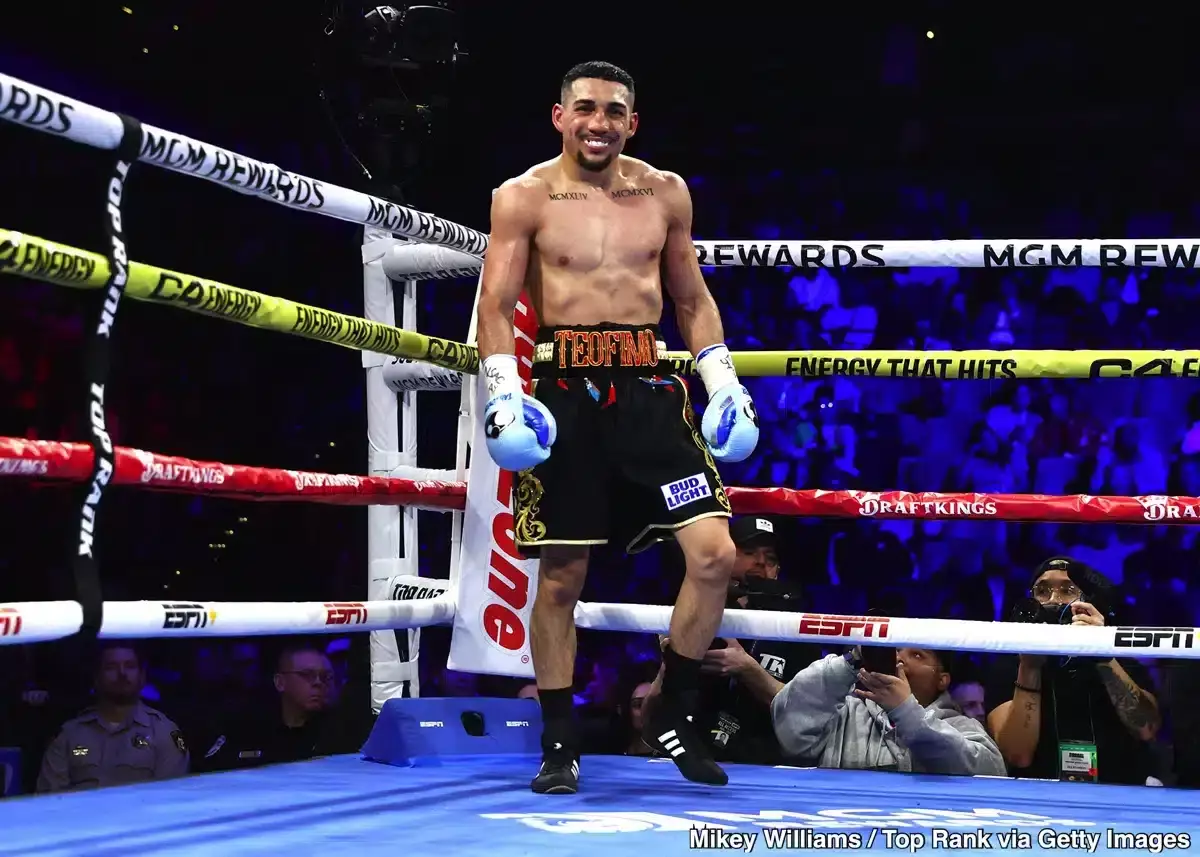The boxing community thrives on anticipation, excitement, and the thrill of competition. However, the recent announcement that the much-anticipated bout between Teofimo Lopez and Devin Haney has collapsed is a startling reminder of the unpredictability that often plagues the sport. Initially scheduled for August 16 in Riyadh, Saudi Arabia, fans were buzzing about this intriguing matchup. But the excitement has swiftly transformed into frustration as negotiations broke down, leaving both fighters scrambling for alternatives.
Negotiation Breakdown: A Missed Opportunity
According to The Ring’s Mike Coppinger, the fight was positioned as a 145-pound catchweight clash. Haney, clearly disillusioned by the turn of events, expressed his disappointment in an interview, emphasizing how close they were to finalizing the fight. With palpable frustration, he stated, “I thought this was the best time to make it happen.” Haney’s willingness to engage in what could have been a high-profile matchup underlines the competitive spirit prevalent in the sport. Yet, the abrupt ending has tarnished the hopes of countless fans eager to witness a showdown between two talented fighters.
The issue appears to stem from Lopez’s refusal to finalize his part of the contract, leading to Haney’s rather harsh condemnation of Lopez, branding him a “duck.” This kind of rhetoric is not uncommon in boxing, yet it underscores the harsh realities athletes face in their pursuit of success. The fallout from this missed opportunity could have implications beyond just this single fight—it raises questions about Lopez’s intentions and commitment to engaging in high-stakes battles.
The Unfolding Mystery: Why Did Lopez Step Back?
The confusion regarding Lopez’s decision to withdraw remains largely unanswered. Fans and analysts alike are left pondering whether there was a miscalculation on Lopez’s team, a change of heart, or perhaps a strategic reevaluation of risks involved. Given that both fighters are at critical junctures in their careers—Haney at 26 and Lopez just a year older—they both stand to gain significantly from pursuing elite-level competition. Their mutual retreat from this bout may ultimately hinder their trajectories and delay potential showdowns that supporters crave.
While Haney is poised for greatness with his career on a prominent upward trend, Lopez’s recent choices may very well determine whether he can maintain his momentum as a leading name in boxing. The competitive landscape is unforgiving, and athletes are under constant pressure to make sound decisions that reflect a balance of risk versus reward.
The Bigger Picture of Boxing Politics
This incident exemplifies the broader challenges that often resonate in boxing. Contractual negotiations, promotional politics, and personal decisions can derail even the most thrilling matchups. The sport is not merely about talent inside the ring; it often revolves around complex entourages and intricate alliances that can affect opportunities dramatically. This collapse might suggest a reluctance from Lopez’s camp to gamble on a fight that holds tremendous stakes for both fighters—yet, in doing so, they may risk losing credibility among fans and future opponents.
With both fighters seemingly at an impasse, it raises a crucial question: what does it mean for the future of boxing when potential matchups falter? The fans, ultimately, are the ones who bear the brunt of these decisions, left to wonder and speculate about what could have been. While the drama unfolds, we can only hope for clarity and a path forward that will breathe new life into the boxing calendar.

